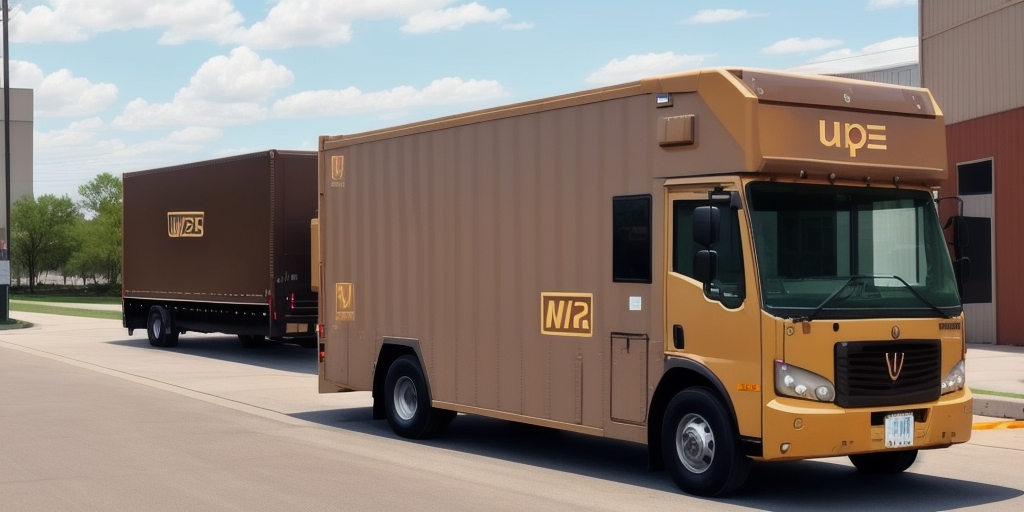Understanding FedEx Shipping Exceptions
As a business that relies on shipping, receiving notifications of FedEx shipping exceptions can be frustrating. These exceptions can lead to delivery delays, lost packages, or damaged items, resulting in unnecessary stress and financial loss. Understanding shipping exceptions and knowing how to avoid or handle them is crucial for maintaining optimal delivery performance and customer satisfaction. In this article, we will delve into the details of FedEx shipping exceptions, why they occur, how to prevent them, and the best practices businesses can implement to minimize these issues.
What Are Shipping Exceptions?
Shipping exceptions are unforeseen circumstances or events that occur during the shipping process, potentially delaying or disrupting delivery. FedEx assigns specific codes to these exceptions, providing detailed information about the issues encountered. Examples of FedEx shipping exceptions include:
- Delivery Delays Due to Weather: Adverse weather conditions that hinder transportation.
- Incomplete or Incorrect Addresses: Errors in address information preventing successful delivery.
- Customs Clearance Issues: Delays in international shipments due to customs regulations.
- Package Damage During Transit: Physical damage to packages affecting their integrity.
Additionally, shipping exceptions can arise from issues related to the package itself, such as oversized or overweight items, or the inclusion of prohibited materials like hazardous substances. Carefully reviewing FedEx's shipping guidelines and restrictions is essential to avoid these exceptions and ensure smooth delivery processes.
Causes of FedEx Shipping Exceptions
FedEx shipping exceptions can occur due to a variety of reasons, including:
- Unexpected Weather Conditions: Natural events that delay transportation.
- Logistical Issues: Problems in the supply chain affecting transit times.
- Human Error: Mistakes in data entry when creating shipping labels or paperwork.
- Customs Delays: Extended processing times at international borders.
- Increased Shipping Volume: High demand periods causing capacity strains.
- Unforeseen Global Events: Events like natural disasters or pandemics disrupting operations.
Understanding these causes helps businesses prepare and develop contingency plans to mitigate potential disruptions to their shipping processes.
FedEx also imposes restrictions on certain items. Prohibited items include hazardous materials, illegal substances, and specific electronics. Ensuring compliance with FedEx's shipping policies is vital to prevent exceptions related to prohibited shipments.
Common Examples of FedEx Shipping Exceptions
Some prevalent FedEx shipping exceptions include:
- Address Correction Needed: Occurs when the provided address is invalid or incomplete, preventing delivery until corrected.
- Exception in Transit: When a package is delayed or held up during transit.
- Package Damaged or Missing: Indicates that a package has been damaged or lost during transportation.
- Customs Clearance Delay: When a package is held up at customs, delaying international delivery.
- Delivery Exception: Arises when a package cannot be delivered due to recipient unavailability, inaccessible address, or required signatures.
- Shipment Exception: Issues related to incorrect labeling, packaging, or inclusion of prohibited items.
Strategies to Avoid FedEx Shipping Exceptions
To minimize shipping exceptions, businesses should adopt proactive strategies, including:
1. Ensure Accurate Shipping Information
Providing precise and complete information when generating shipping labels is crucial. Double-checking addresses can prevent address-related exceptions.
2. Prepare for Unforeseen Circumstances
Businesses should be ready for unexpected events like weather disruptions or global emergencies that may cause shipping delays. Developing contingency plans can help mitigate these disruptions.
3. Invest in Robust Shipping Software
Utilizing advanced shipping software that offers real-time tracking and delay notifications enables businesses to respond swiftly to potential issues.
4. Proper Packaging
Using appropriate packaging materials and ensuring packages are securely sealed follows FedEx's guidelines, reducing the risk of damage and related exceptions.
Responding to FedEx Shipping Exceptions
When a shipping exception occurs, businesses must act promptly to resolve the issue and minimize delays:
1. Contact FedEx Customer Service
Reach out to FedEx to obtain detailed information about the exception affecting your shipment. This can help identify the necessary steps to resolve the issue.
2. Provide Additional Information
Resolving exceptions may require supplying more details, adjusting shipping labels, or rerouting shipments. Timely action can prevent further delays.
3. Communicate with Customers
Keeping customers informed about the status of their shipments and any delays helps maintain transparency and trust. Consider offering alternative shipping options or compensation to manage customer expectations effectively.
Handling Damaged or Lost Packages
If a package is damaged or lost due to a shipping exception, businesses can file a claim with FedEx to recover losses:
1. Filing a Claim
Use the FedEx online claim form to submit necessary documentation, such as shipping labels, proof of value, and evidence of damage or loss. Claims must typically be filed within 60 days of the shipment date.
2. Documentation and Follow-Up
Maintain all records related to the claim and follow up with FedEx to ensure proper processing. If a claim is denied, businesses can appeal the decision or seek alternative reimbursement options.
Best Practices to Minimize FedEx Shipping Exceptions
- Ensure Accurate and Complete Shipping Information: Double-check all details before submission.
- Use Reliable Shipping Software: Opt for solutions that offer real-time tracking and delay notifications.
- Monitor Shipping Processes: Proactively identify and address potential disruptions.
- Implement Contingency Plans: Prepare for unforeseen events like natural disasters or global emergencies.
- Verify Shipping Paperwork: Review all shipping documentation carefully before final submission.
The Role of Shipment Insurance in Managing Exceptions
Shipment insurance provides businesses with protection against lost or damaged packages resulting from shipping exceptions. Depending on the shipment's value and the chosen coverage level, insurance can offer compensation for losses incurred during transit. For businesses frequently shipping high-value items, investing in shipment insurance is highly advisable.
Selecting the Right Carrier for Your Business
Choosing an appropriate carrier involves evaluating several factors to ensure reliable shipping services:
- Reliability: Carriers with consistent on-time delivery records.
- Transparent Pricing: Clear and competitive pricing structures.
- Customer Service: Responsive and helpful support teams.
- Specific Needs: Consider the volume, weight, and nature of shipments.
- Transit Times and Tracking: Efficient delivery schedules and robust tracking capabilities.
Compliance with Regulations to Prevent Shipping Exceptions
International shipping requires adherence to various regulations and legal requirements, such as accurate product descriptions, necessary certifications, and customs compliance. Non-compliance can lead to shipping exceptions, delays, and legal repercussions. Businesses must stay informed about current regulations and ensure all requirements are met to avoid these issues.
The Impact of COVID-19 on FedEx Shipping and Exception Handling
The COVID-19 pandemic significantly disrupted the shipping industry, including FedEx operations. Increased online shopping volumes led to capacity strains, while safety measures reduced staffing levels, causing delivery delays. Business and shipping center closures due to government restrictions also contributed to shipping exceptions. FedEx has been working to mitigate these impacts by adjusting operations and implementing safety protocols. Businesses can collaborate with FedEx to navigate pandemic-related challenges and minimize shipping disruptions.
Future Trends and Technologies to Reduce FedEx Shipping Exceptions
Advancements in technology and emerging trends are poised to address common shipping challenges, including exceptions:
- Artificial Intelligence and Machine Learning: Enhancing data analysis and route optimization for more efficient deliveries.
- Electric and Autonomous Vehicles: Improving transportation efficiency and reducing delays.
- Blockchain Technology: Increasing transparency and security within the shipping and logistics sector.
By staying abreast of these developments, businesses can adopt innovative solutions to streamline their shipping processes and reduce the incidence of exceptions.
In conclusion, while FedEx shipping exceptions can impact any business, understanding their causes and implementing preventive measures can significantly reduce their occurrence. Adopting best practices, staying compliant with regulations, and leveraging reliable partners ensures optimal delivery performance and sustained customer satisfaction. Stay informed, plan proactively, and keep your shipments moving smoothly!








